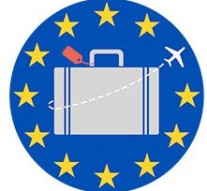
EASI Programme: Call for Proposals on Workers’ Mobility
EU funding opportunities 18 May 2016Under the framework of the “EaSI” Programme 2014-2020, the European Commission has launched a new call for proposals to promote workers’ geographical mobility, to boost employment opportunities and support the implementation of the EURES reform.
What are EURES and the EASI Programme?
The European Programme for Employment and Social Innovation “EaSI” 2014-2020 is a European-level financing instrument managed directly by the European Commission, intended to promote gender equality and combat discrimination, while paying particular attention to vulnerable groups, such as young people. It also promote a high-level of quality and sustainable employment, guarantee adequate and decent social protection, combat long-term unemployment and fight against poverty and social exclusion.
The call for proposals is issued in the context of the implementation of the 2014 annual work programme for grants and procurement for the EURES axis of the EaSI programme, which aims to increase transparency of job vacancies, applications and any related information for jobseekers, workers and employer; to foster the development of services for the recruitment and placing of workers in employment; to promote cross-border partnerships.
EURES (European Employment Services) was launched in 1993 as a network for co-operation between employment services of the Member States, their partners and the Commission to exchange information concerning vacancies and applications for employment, information on the state and trends of the labour market as well as information concerning living and working conditions. Its purpose is to facilitate mobility on the European labour market. The two pillars of EURES are (a) the European Job Mobility Portal and (b) the human network of EURES Advisers.
Objectives of the call
The call for proposals aims at promoting workers’ geographical mobility, boosting employment opportunities as well as supporting the implementation of the EURES reform.
The call consists of four strands in line with the 2016 annual work programme for grants and procurement for EaSI:
- The first strand will seek to support cross-border partnerships to implement EURES objectives;
- The second strand will seek to develop new forms of cooperation for the integration of the labour market in cross-border regions;
- The third strand will seek to facilitate labour mobility between the European Union and the EEA countries as well as to support the implementation and operation of the EURES network in the EEA countries;
- The fourth strand will seek to support closer cooperation of EURES members with social partners.
The deadline for the submission of complete applications is 8 July 2016
Budget
Following the adoption of the 2016 Financing Decision for the EaSI11 programme, the total budget earmarked for the EU co-financing of projects under this call is estimated at EUR 4,650,000 and is to be allocated, indicatively, depending on the quality of the proposals, as follows:
- For strand 1 “Cross-border partnerships” EUR 3,800,000;
- For strand 2 “Support to the development of new cross-border partnerships”, EUR 300,000;
- For strand 3 “Support to cooperation on intra-EU mobility in the EEA countries” EUR 400,000;
- For strand 4 “Support to cooperation on intra-EU mobility for social partners” EUR 150,000.
Under this call for proposals, the European Commission may finance up to 95% of the total eligible cost of the action, although it reserves the right not to distribute all the funds available.
Eligibility Criteria
Applicants must be legal persons properly constituted and registered in one of the EU Member States or Iceland and Norway.
They must also be entities that offer free services to job seekers, provide job vacancies and CV’s in accordance with the uniform system for the EURES portal and to provide information to the National Coordination Office for the programming and reporting cycle. Other eligibility requirements are established according the various strands.
More eligibility criteria of applicants and other information on this call can be found on the dedicated webpage of the European Commission’S DG for employment, social affairs and inclusion.







